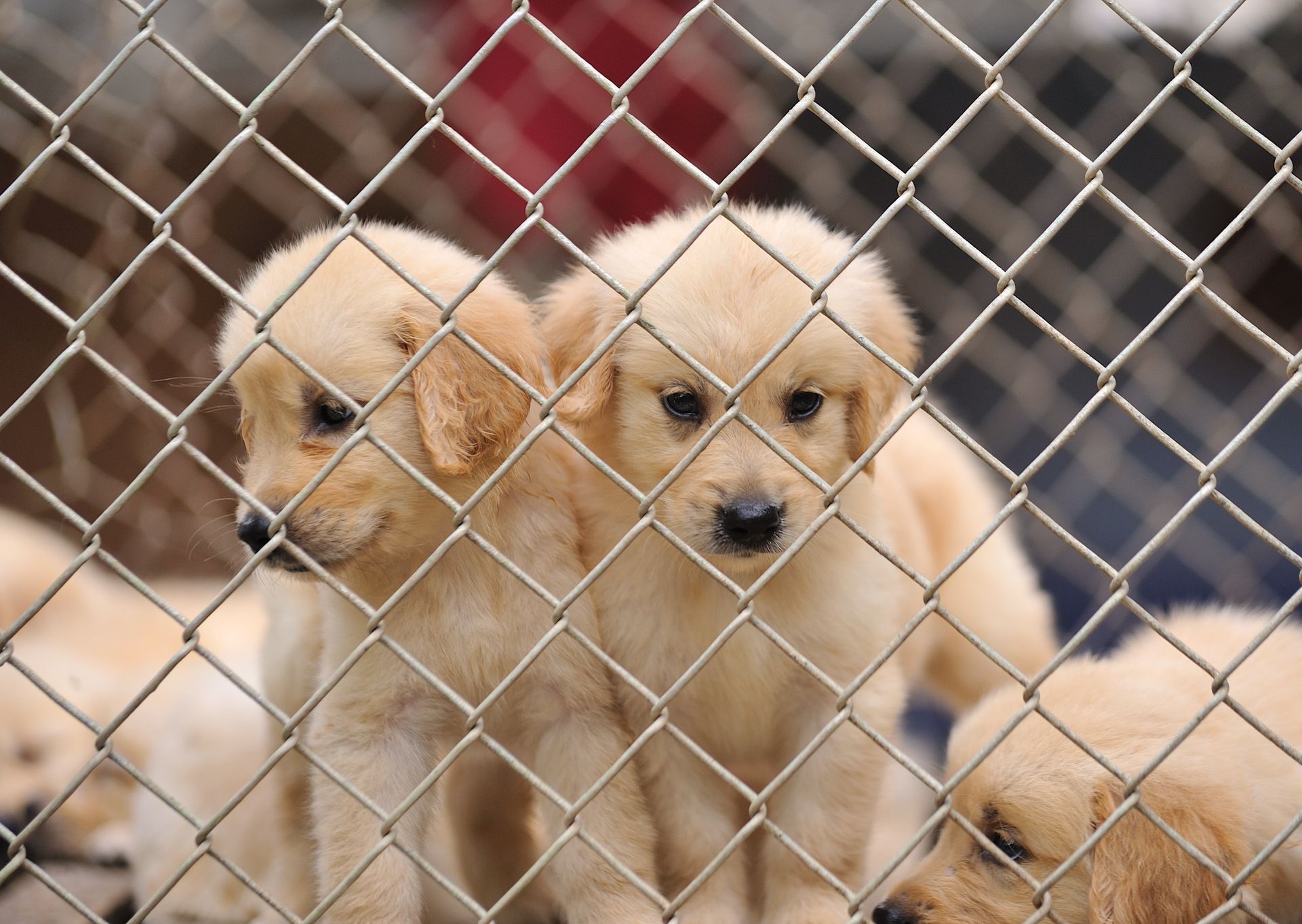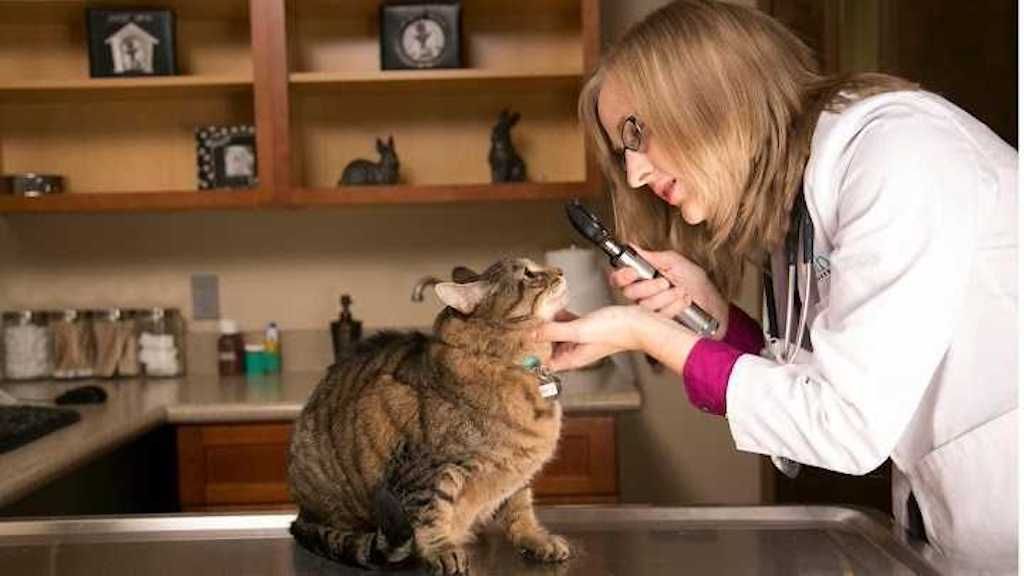Puppy Mills vs. Responsible Breeders: Know the Difference
Puppy Mills vs. Responsible Breeders: Know the Difference

What Are Puppy Mills?
Puppy mills are large-scale commercial breeding facilities that prioritize profit over the health and well-being of the dogs. These operations often cut corners on essential care to maximize their profits, resulting in substandard living conditions and significant health and behavioral problems for the animals involved. Here are some key characteristics and issues associated with puppy mills:
- Overcrowded and Unsanitary Conditions: Dogs in puppy mills are often kept in small, cramped cages with little to no space to move around. These cages are typically stacked on top of each other, leading to unsanitary conditions with poor ventilation and inadequate waste management.
- Lack of Veterinary Care: Puppy mill dogs rarely receive proper veterinary care. This neglect can lead to untreated illnesses, injuries, and chronic health conditions. Common issues include dental disease, skin infections, and respiratory problems (AKC Canine Health Foundation).
- Poor Socialization: Dogs in puppy mills usually have limited interaction with humans and other animals. This lack of socialization can result in behavioral problems, such as fearfulness, aggression, and difficulty adapting to life in a home environment (American Kennel Club).
- Frequent Breeding: Female dogs in puppy mills are bred at every opportunity, without regard for their health or well-being. This constant breeding cycle leads to physical exhaustion and a higher risk of genetic defects in the puppies (Vet Focus).
- Early Separation: Puppies are often taken from their mothers at a very young age, sometimes as early as 6 weeks. This premature separation can lead to developmental issues and weakened immune systems (American Kennel Club).
The Problems Associated with Puppy Mills
The issues associated with puppy mills extend beyond the poor conditions for the dogs. These practices also have broader implications for the dogs' future Pet Parents and the community:
- Health Problems: Puppies from mills are more likely to suffer from genetic disorders, infectious diseases, and congenital defects. New owners often face significant veterinary bills and emotional stress due to these health issues (Pets Dog World).
- Behavioral Issues: Lack of socialization and poor early-life experiences can result in puppies with severe behavioral problems. These issues can make training difficult and may lead to dogs being surrendered to shelters (American Kennel Club).
- Contributing to Overpopulation: Puppy mills contribute to the pet overpopulation problem. Many mill puppies end up in shelters, exacerbating the strain on animal rescue organizations and increasing the number of animals euthanized each year (Vet Focus).
Responsible Breeders: The Ethical Alternative
In contrast to puppy mills, responsible breeders prioritize the health, temperament, and overall well-being of their dogs. Here’s how to identify a responsible breeder and understand the benefits they offer:
- Health Testing and Veterinary Care: Responsible breeders conduct thorough health testing and provide regular veterinary care for their breeding dogs. They screen for genetic diseases and ensure that puppies are healthy before they go to their new homes (AKC Canine Health Foundation) (Pets Dog World).
- Proper Socialization: Puppies are raised in a home environment where they receive plenty of socialization with humans and other animals. This early interaction helps them develop into well-adjusted, confident dogs (Pets Dog World).
- Ethical Breeding Practices: Responsible breeders follow ethical breeding practices, including ensuring that dogs are not overbred and providing ample time for mothers to recover between litters. They also maintain detailed records of their dogs' health and lineage (American Kennel Club).
- Transparency and Support: A reputable breeder is transparent about their breeding practices and happy to answer any questions prospective buyers may have. They provide ongoing support to new owners and are often willing to take back dogs if the new home doesn’t work out (AKC Canine Health Foundation).
- Commitment to the Breed: Responsible breeders are dedicated to improving the breed. They participate in breed clubs, adhere to breed standards, and often show their dogs in competitions to ensure they meet the highest standards of conformation and behavior (Vet Focus).
How to Identify a Responsible Breeder
When looking for a puppy, it’s important to distinguish between responsible breeders and puppy mills. Here are some tips to help you identify a responsible breeder:
- Visit the Breeder’s Facility: A reputable breeder will allow you to visit their facility and meet the puppies and their parents. This gives you the opportunity to see the living conditions and ask questions.
- Ask for Health Records: Responsible breeders will provide comprehensive health records for the puppies and their parents, including information on vaccinations, genetic tests, and any health issues.
- Inquire About Socialization: Ask how the puppies are socialized. Responsible breeders will expose puppies to various environments, people, and other animals to ensure they are well-adjusted.
- Check References: Ask for references from previous buyers and check reviews or testimonials online. Positive feedback from other Pet Parents can be a good indicator of a breeder’s reputation.
- Verify Memberships: Look for breeders who are members of recognized breed clubs and organizations like the AKC. These memberships often require adherence to specific ethical standards and guidelines.
- Avoid Online Ads and Pet Stores: Puppies sold through online ads or Pet stores are often sourced from puppy mills. Instead, seek out breeders through breed clubs or referrals from veterinarians and trusted sources (AKC Canine Health Foundation) (American Kennel Club).
Understanding the difference between puppy mills and responsible breeders is essential for ensuring the well-being of dogs and the satisfaction of Pet Parents. By supporting responsible breeding practices, we can help combat the inhumane conditions of puppy mills and promote healthier, happier lives for our canine companions. For more information on responsible breeding, visit the AKC Canine Health Foundation and the American Kennel Club.
RECENT ARTICLES



